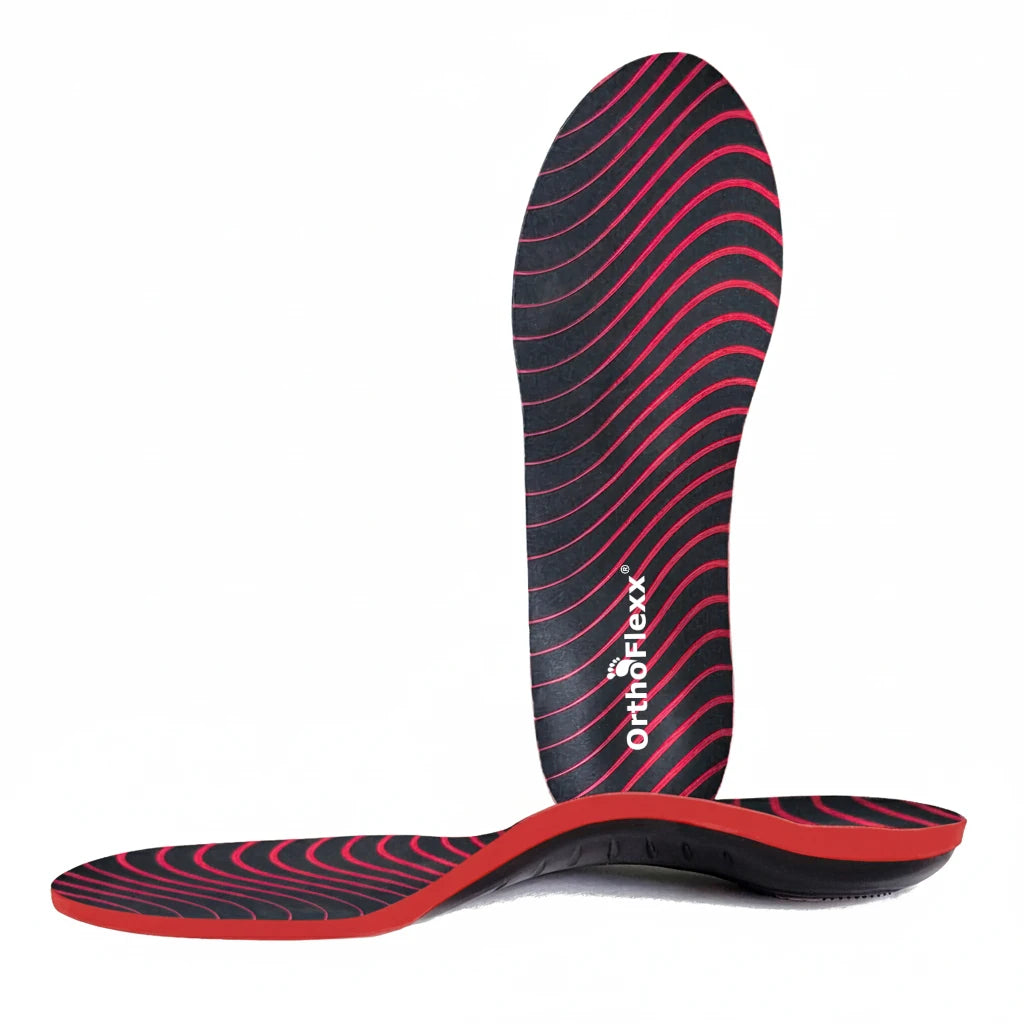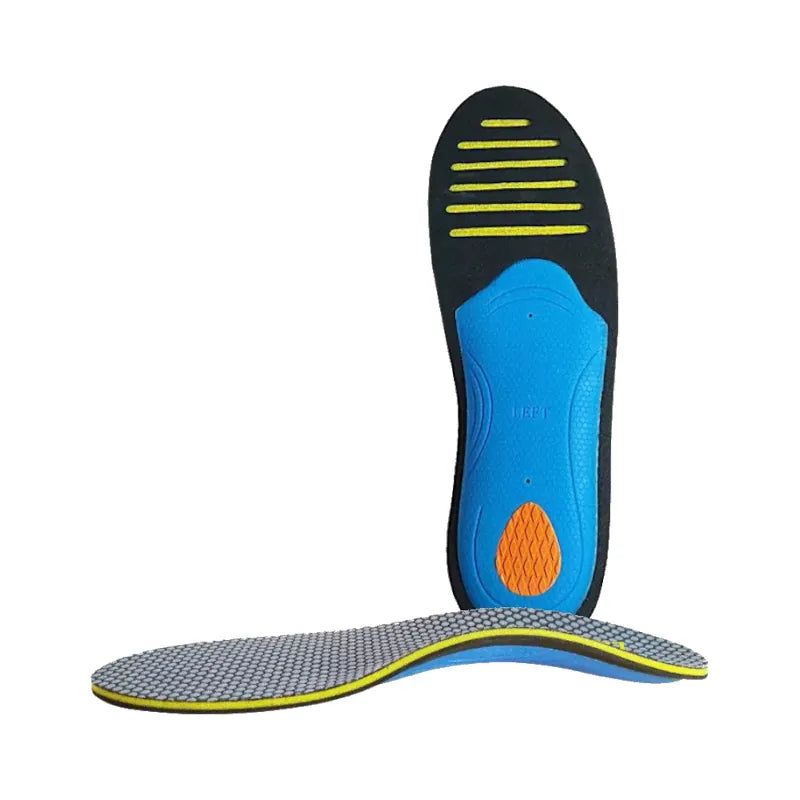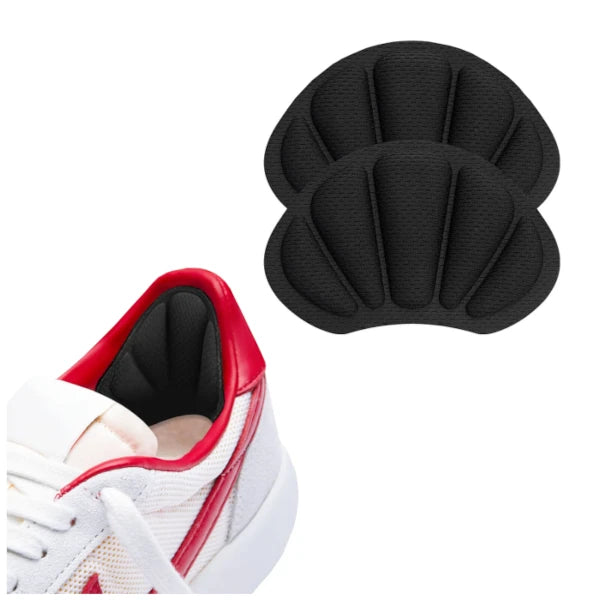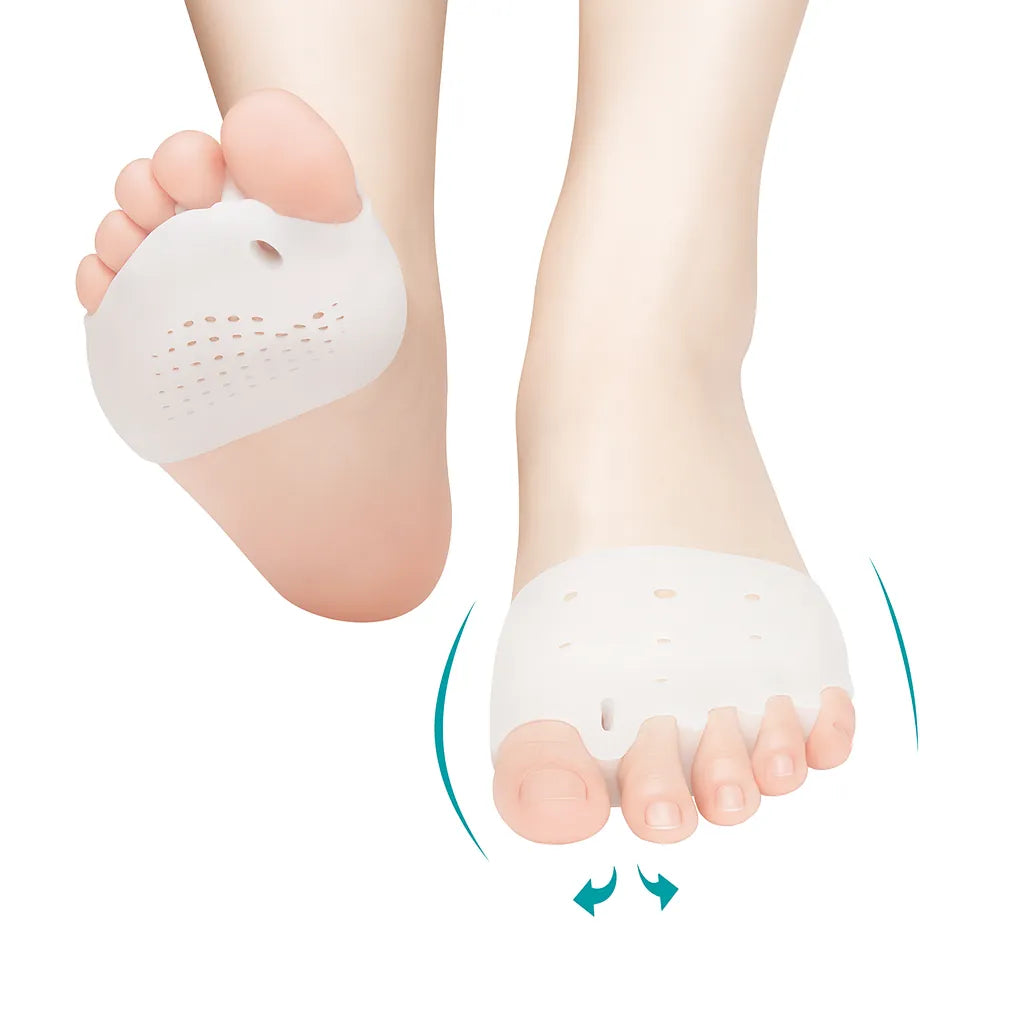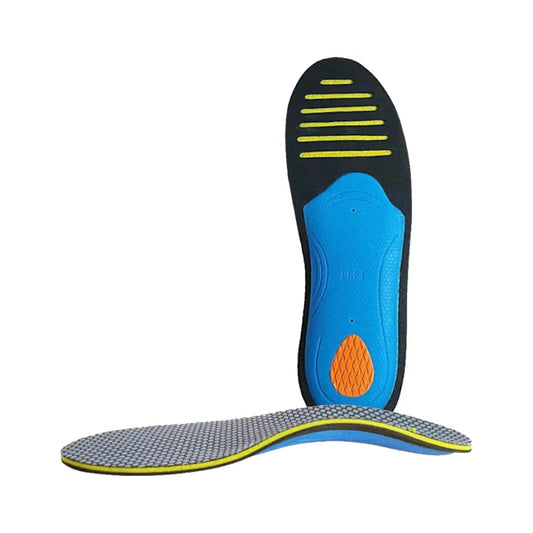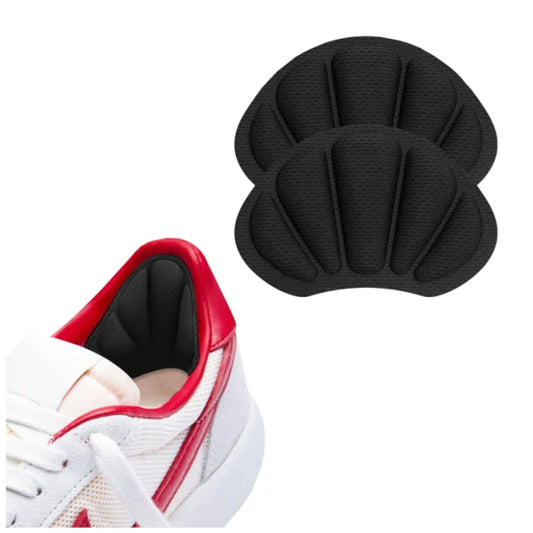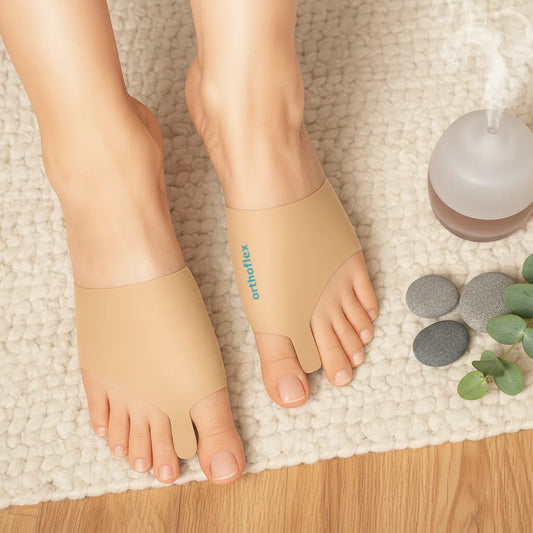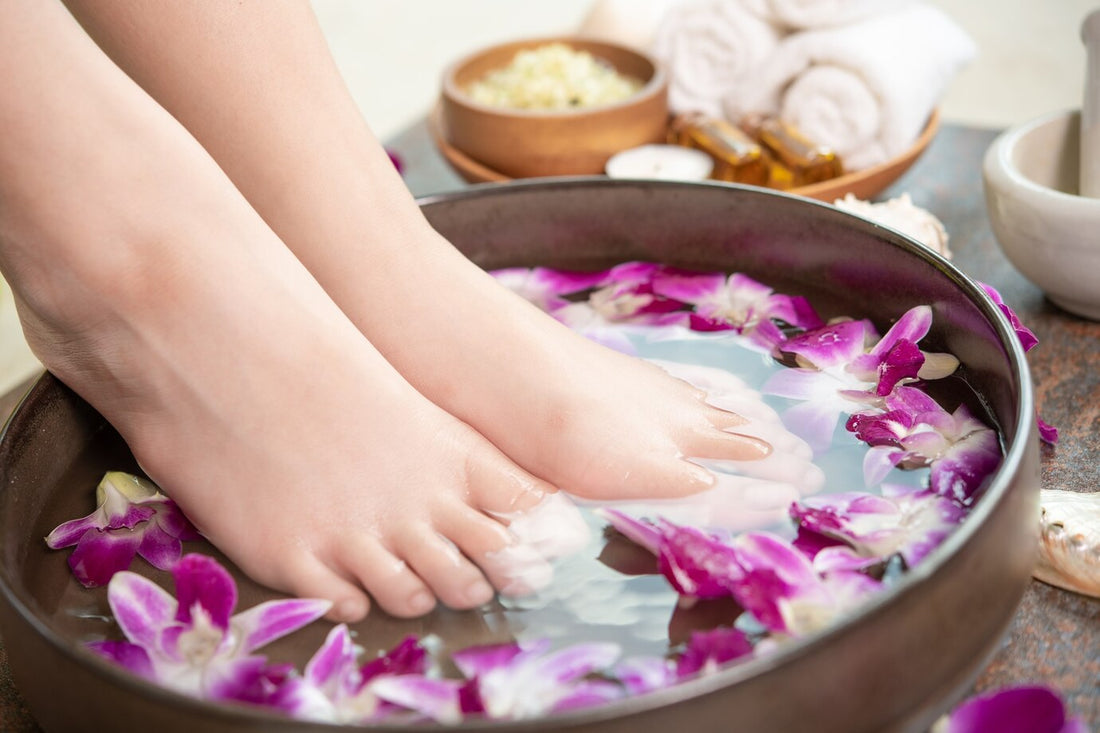
Effective Home Remedies For Foot Pain Relief
Share
14 Effective Home Remedies for Foot Pain Relief
Tired of dealing with chronic foot pain? Whether you're suffering from heel pain, discomfort in your toes, or tight calf muscles, these natural treatments have got you covered. Say goodbye to expensive treatments and hello to affordable solutions right at home.
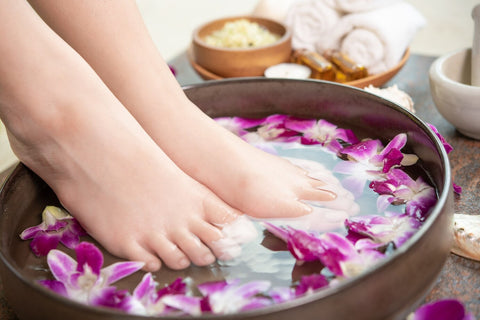
By utilizing techniques such as foot baths, proper stretching exercises, and wearing comfortable shoes, you can alleviate foot pain and promote overall well-being.
Ice Packs or Heat Therapy - Reduce inflammation and numb pain with ice packs.
When your feet are throbbing with pain, one of the quickest ways to find relief is by using ice packs. The cold temperature helps reduce inflammation and numbs the pain, providing you with some much-needed comfort. Simply wrap an ice pack or a bag of frozen peas in a thin towel and apply it to the affected area for about 15 minutes at a time.
On the other hand, if you prefer heat therapy for foot pain relief, this can be highly effective. Putting your feet in warm water will help soothe your muscles and alleviate pain.
Alternate between ice packs and heat therapy to maximize foot pain relief management. This combination can provide even greater benefits as both cold and heat therapies work differently to reduce pain and inflammation. Start with an ice pack for 15 minutes, then switch to heat therapy for another 15 minutes. Repeat this process several times throughout the day or as needed.
Remember that these home remedies are not meant to replace professional medical advice if you have severe foot injuries or chronic conditions like plantar fasciitis. However, they can offer temporary relief from everyday foot pain caused by minor injuries or strain.
Stretch It Out - relief tension and soreness
One way to find relief from foot pain is by incorporating stretching exercises into your routine. Stretching helps relieve tension in the muscles and reduces soreness. Try these simple stretches:
Calf stretch: Stand facing a wall with one leg forward and one leg back, keeping both heels on the ground. Lean towards the wall until you feel a stretch in your calf muscles.

Toe stretch: Sit on a chair and cross one leg over the other. Gently pull your toes back towards you until you feel a stretch in the bottom of your foot.
Give Your Feet a Break
After a long day of being on your feet, they deserve some rest. Elevating your feet can provide much-needed comfort and help reduce swelling. Find a comfortable position where you can prop up your feet on pillows or cushions.
Choose Comfortable Shoes and use adequate orthotics for your feet!
Wearing ill-fitting shoes can contribute to foot pain and discomfort. Opt for shoes that provide proper support, cushioning, and enough room for your toes to move freely. Avoid high heels or shoes that put excessive pressure on certain areas of your feet.
Orthotics such as insoles or heel cups are life changing additions for your feet. Besides being cheaper and normally adjustable to every type of foot (allowing you to use them any day anytime), they provide much more comfort, arch support, stability and shock absorption.

Remember, taking care of your feet is essential for overall well-being. Incorporate these strategies into your routine to find relief from soreness and keep those tired feet happy!
Understanding Foot Problems: Diagnosis and Treatment
Common Foot Problems: Discomfort and Pain
If you've ever experienced foot pain, you're not alone. Many people suffer from various foot problems that can cause discomfort or even severe pain. Some common foot problems include plantar fasciitis, tendinopathies, swollen feet, and issues with the foot muscles.
Seeking Professional Diagnosis for Persistent or Severe Foot Pain
While mild foot pain can often be relieved with home remedies or over-the-counter treatments, persistent or severe foot pain may require professional diagnosis and treatment. If your foot pain persists despite trying self-care methods, it's essential to seek medical advice to determine the underlying cause and receive appropriate treatment.
Personalized Treatment Options for Specific Conditions
The treatment options for foot problems vary depending on the specific condition. That's why it's crucial to consult a healthcare provider who can provide personalized advice based on your symptoms and medical history. They may recommend a combination of treatments such as physical therapy exercises to strengthen the feet and alleviate pain.
Importance of Proper Shoe Fit
One of the key factors in preventing and managing foot problems is wearing correctly fitting shoes. Ill-fitting shoes can exacerbate existing conditions or lead to new ones. It's important to choose footwear that provides adequate support, cushioning, and room for your toes to move comfortably.
Recognizing Underlying Medical Conditions
In some cases, foot pain may be a symptom of an underlying medical condition such as peripheral neuropathy (nerve damage) or diabetes. If you have diabetes or suspect a medical condition is causing you foot pain, it's crucial to consult with a healthcare professional for proper diagnosis and management.
Now that you're armed with this knowledge, it's time to take action and find the remedy that works best for you and when to seek a healthcare professional’s opinion. Remember, everyone is different, so what may work wonders for one person might not have the same effect for another. Don't be afraid to experiment and find what brings you lasting relief.
So go ahead and try out these home remedies. Your feet will thank you! Take care of your feet like they're your best friends - after all, they carry you through life's journey every step of the way.
FAQs
Can I use these home remedies if I have a medical condition?
While these home remedies can provide temporary relief for mild foot pain, it's important to consult with a healthcare professional if you have an underlying medical condition or if your pain persists. They can offer personalized advice based on your specific situation.
How often should I use these remedies?
The frequency of using these remedies depends on the severity of your foot pain and how well your body responds to them. Start by using them as needed and adjust accordingly. If in doubt, consult a healthcare professional.
How long does it take for these remedies to work?
The time it takes for these remedies to provide relief can vary from person to person. Some may experience immediate relief, while others may need to use them consistently over a period of days or weeks before noticing significant improvement. Be patient and listen to your body's response.
Author Bio

Inês Pinheiro
Certified Physiotherapist for Shoulder and Knee Injuries
Inês is a skilled physical therapist with a special interest and extensive experience in working with athletes, specifically football players and also neurologic patients.
